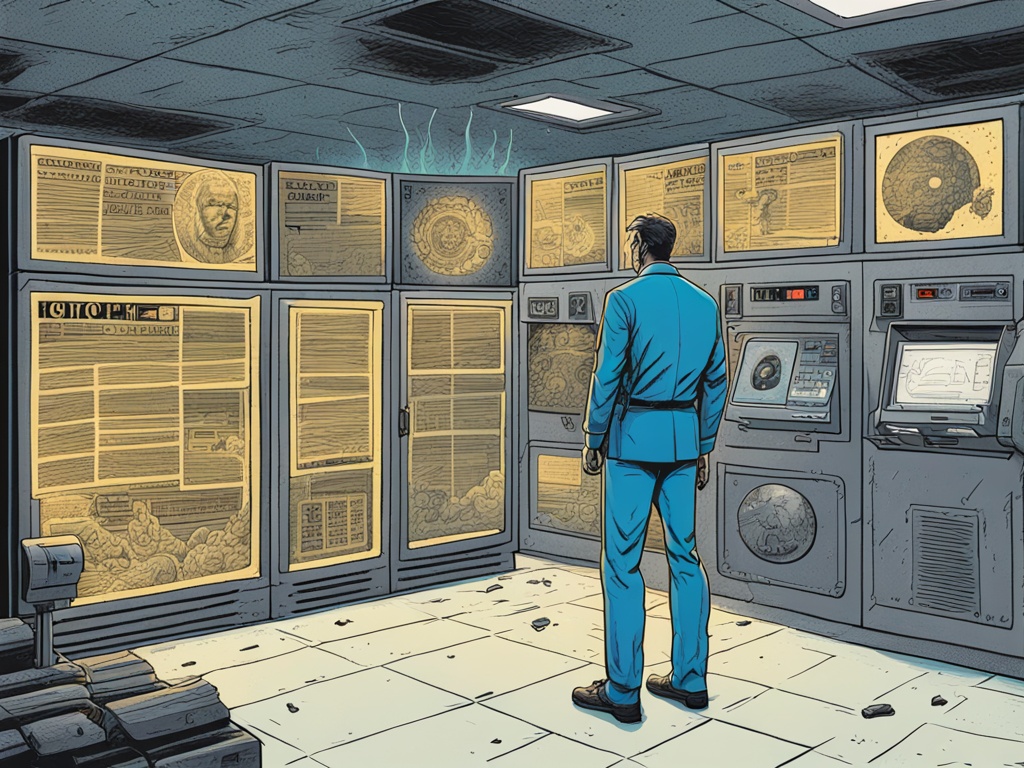John Deaton Proposes Investigation into Alleged Banking Restrictions on Crypto 🚀
John Deaton, a prominent advocate for XRP and the broader cryptocurrency sector, has taken the initiative to propose an inquiry into the purported “Operation Choke Point 2.0.” This initiative allegedly aims to limit cryptocurrency firms from gaining access to conventional banking services. Deaton made this announcement through social media on January 4, addressing President-elect Donald Trump, Vice President JD Vance, and other officials of the incoming administration.
Critical Nature of the Investigation 🔍
Deaton describes this investigation as essential, emphasizing that its implications stretch far beyond the cryptocurrency domain. He perceives this effort as a fundamental struggle against the degradation of institutional integrity and unchecked authority exercised by unelected officials. According to him, neglecting to confront these actions could establish a perilous precedent, wherein regulatory agencies could quietly eliminate entire sectors they find unagreeable, curtailing innovation and economic prospects.
Significance of Choke Point 2.0 📉
In his statement, Deaton remarked, “Many, including certain individuals within the cryptocurrency community, underestimate the importance of Choke Point 2.0. While engaged in the ongoing Ripple case, I argued it is the most consequential non-fraud regulatory enforcement action by the SEC in contemporary times.” His assertions highlight the gravity of the situation facing the cryptocurrency industry.
A Selfless Offer to Lead the Investigation 🤝
In his social media message, Deaton expressed his willingness to take charge of this controversial inquiry without any financial compensation. He stresses that American citizens deserve to uncover the truth much more than any individual deserves an additional salary funded by taxpayers. His remarks arrive following a crucial legal milestone in an ongoing case, where a court granted Coinbase access to unaltered documents from the Federal Deposit Insurance Corporation (FDIC). These records might clarify the involvement of federal agencies in the alleged restrictive operation.
Context of the Proposal 🎭
Deaton’s call for an investigation comes soon after his recent loss in the Massachusetts Senate race, where he contested against crypto adversary Senator Elizabeth Warren. Throughout the campaign, Deaton accused Warren of focusing on anti-cryptocurrency agendas rather than addressing pressing challenges confronting everyday American workers.
Hope for a Favorable Shift in Cryptocurrency Regulation 🌅
As the United States gears up for a new leadership era with President-elect Trump, numerous advocates within the cryptocurrency space remain optimistic about potential regulatory reforms. This shift could alleviate stringent rules impeding the growth of the cryptocurrency industry, which has faced increasing scrutiny in recent years.
Understanding Operation Choke Point 2.0 🔒
Operation Choke Point 2.0 is characterized as an initiative that targets the banking infrastructure, making it more difficult for cryptocurrency firms to secure banking services. Deaton’s proposal to investigate this operation indicates growing concern that regulatory bodies may exert their influence over industries they do not favor.
Implications for Innovation and Economic Growth 📈
This investigation could have significant implications, not just for the cryptocurrency industry but for innovation and economic growth as a whole. By examining the actions that may serve to limit access to financial services, those involved could potentially uncover broader trends affecting numerous sectors. Clarity in these matters may help both entrepreneurs and consumers navigate an ever-evolving landscape of regulations and opportunities.
Hot Take: The Future of Crypto and Regulation 🔮
The ramifications of John Deaton’s proposal to lead an investigation into Operation Choke Point 2.0 raise critical questions about the future of cryptocurrencies and their interaction with regulatory frameworks. Should Deaton’s initiative gain traction, it may signal a turning point for the industry and open the door for potential changes in how cryptocurrency advocates and regulators communicate. The outcome of this inquiry could fundamentally alter the relationship between the financial system and emerging technologies.




 By
By

 By
By
 By
By

 By
By